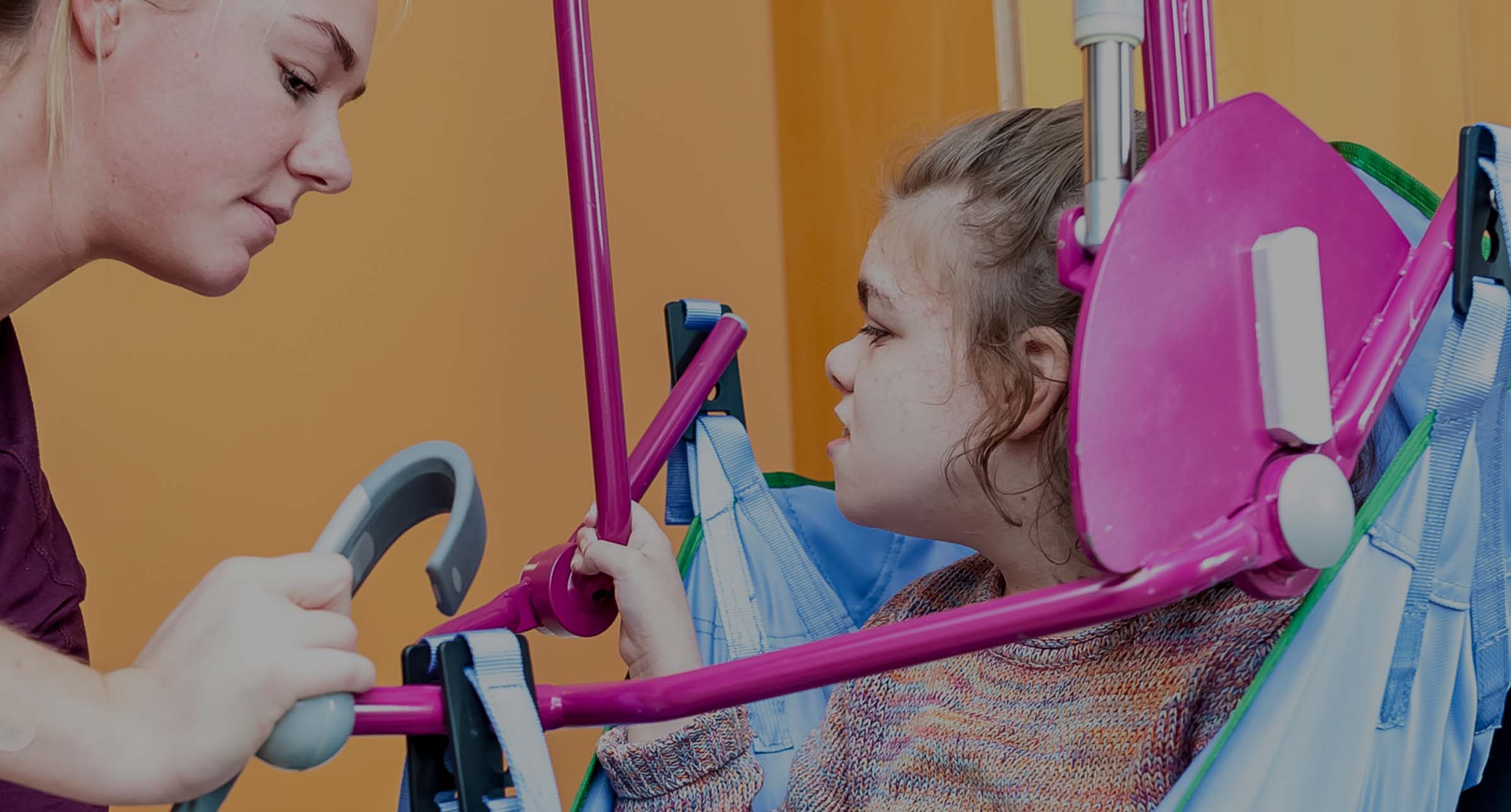At RWK Goodman our specialist team can help support and advise you if you are considering a change of deputy. We understand that this can be a difficult decision and we can act as a sounding block to make sense of the situation and to steer you through the process.


Here to help you understand your deputy's role
We're here to help you understand what a deputy should be doing, and how to change deputy if you're not happy.
Your guide to deputyships
When they're appointed. What they do. How you can change deputy. We're here to explain it all.
When it is determined that a client lacks capacity to make financial decisions, the Court of Protection will appoint a deputy – whether a friend or family member, or a professional deputy – to help the individual manage their financial affairs.
What is a deputy?
If someone lacks the capacity to manage their own financial affairs then a deputy will be appointed by the Court of Protection. The role of a deputy is to make necessary financial decisions in the best interests of that individual.
The deputy can either be a friend or family member (known as a lay deputy) or a professional, such as a solicitor. Whether the individual has capacity to deal with their own financial affairs is determined by a medical expert.
An individual’s ability to make decisions can vary and it is the deputy’s responsibility to support that person to make decisions themselves when they are able or do so, or to work with them to make those decisions on their behalf.
Deputy responsibilities
Deputies are appointed by an Order of the Court of Protection and are closely supervised by the Office of the Public Guardian. Every deputy must act in accordance with the principles of the Mental Capacity Act 2005.
A deputy will collaborate with clients and their family members to obtain all the different viewpoints, ensuring each decision is made in the best interests of the individual who lacks capacity.
The Order appointing the deputy will give them the authority to make a range of decisions, however there are certain decisions which will require a further application to the Court of Protection. These can include provision to:
- buy or sell property
- buying and selling jointly with family members
- buy property jointly with family members
- proceed with non-standard investments (buy-to-let / holiday properties, ethical investments etc.)
- make statutory Wills
- make gifts.
What should a financial deputy do?
We have identified 20 tasks that a financial deputy should be undertaking for you or someone close to you who lacks financial capacity.
A financial deputy should:
1 – Make applications to and liaise with the Court of Protection and the Office of the Public Guardian (OPG) where necessary.
The OPG (which is independent of the Court of Protection) provides a supervisory function and is responsible for the supervision of the deputy. Both the Court of Protection and the OPG charge fees.
Typically in larger compensation cases with a professional deputy there will be general supervision if assets are worth more than £21,000 or minimal supervision if less.
2 – The OPG introduced Deputy Standards (OPG DS) in July 2015 directed specifically at professional deputies:
“The standards clearly set out what is expected of professional and public authority deputies and provide an important checklist of actions and behaviours every deputy should follow. Deputies will be assessed against the standards either through face-to-face assurance visits, assurance reviews conducted by telephone or during case reviews”.
Accordingly, the deputies will be required to make themselves available for such assurance visits.
3 – Prepare annual accounts/reports for the Office of the Public Guardian.
4 – Pay an annual surety bond (also called a ‘security bond’). The bond is insurance that protects the assets of the person whose affairs and property the deputy is managing.
5 – Complete tax returns and make payment to the HM Revenue & Customs as necessary.
6 – Deal with requests for capital expenditure such as purchasing an adapted vehicle or specialist equipment.
7 – Set appropriate budgets and make regular payments as appropriate (standing orders, direct debits).
8 – Liaise with an Independent Financial Adviser to invest the compensation and consider the investment proposals, as the Deputy Standards require that a review of savings and investment portfolio is conducted at least once a year to demonstrate a responsible use of assets, rather than simply asset preservation.
With the current volatility in the market initially due to BREXIT, then the “Trump factor”, and now the unprecedented impact of the coronavirus pandemic, there is uncertainty around investments which is predicted to continue for some time. Therefore, the investment portfolio and the risk profile should be reviewed regularly in the context of the current economic climate.
9 – Oversee the care agency/arrange the employment and retention of direct-hire carers and other employed staff, and liaise as appropriate with the case manager.
10 – Oversee and arrange payment of national insurance contributions and PAYE tax in respect of any employee’s wages (e.g. carers).
11 – Ensure that the care and therapeutic regimes continue to meet the client’s needs, and are good value for money and appropriate to the level of funds available.
12 – Liaise with the client’s extended family, case manager, advocate, support workers and other parties as appropriate and in accordance with the “best interests” criteria record the client’s feelings, wishes, beliefs and interests, both past and present.
13 – Ensure that the client receives the correct state benefits, council tax benefits and exemptions, housing benefit and local authority/public funding for care. The Deputy Standards require the deputy to undertake this review at least once a year.
14 – Pay bills, fees and regular expenses and ensure scrutiny of payments of any liabilities attaching to the client.
15 – Estimate/project deputyship annual management fees in accordance with Practice Direction B.
16 – Submit a bill of costs to the court for assessment at the end of each deputyship year.
17 – Ensure appropriate buildings and contents insurance are in place and familiarise themselves with the terms of the policies.
18 – Purchase or rent an appropriate home for the client and regularly review the condition of the property to ensure it is adequately maintained.
19 – Regularly review the suitability of the property for the client and identify whether any adaptation is require to meet their needs due to their injuries and disabilities; manage the adaptation project in collaboration with the specialist architect, project manager and contractor.
20 – It is probable that the mechanism of settlement will be a combination of a lump sum and a Periodical Payment Order (PPO). PPOs are paid on an annual basis and linked to an appropriate index.
How to change your deputy
Our specialist team help to explain your options in the event you wish to change your deputy.
Yes, and there are many reasons why a person may wish to change their deputy. It could be that the deputy is a family member who no longer wishes to act as they are getting older or do not have the time to continue in the role. Or the person who has a deputy would prefer someone else to take on this role.
If the individual has a professional deputy it may be because that person is moving to another firm or retiring.
Sometimes a change of deputy is required because the relationship has broken down or there is no consensus on the best way forward.
An application needs to be made to the Court of Protection who will then consider whether it is in the person’s best interest to appoint a successor deputy and, if so, whether the new proposed deputy is suitable.
The Court may also ask for the person’s capacity to manage their finances to be reassessed, particularly if the interval since the last assessment is a long one. The process to change a deputy can take around six months.
The new deputy can be a family member or close family friend, or it may be another professional deputy.
At RWK Goodman we are always happy to chat to you or you family about who is best placed to take on this role.
It is possible for clients to regain capacity to manage their finances, often due to further rehabilitation and cognitive recovery.
The decision as to whether a person has capacity to manage their finances is made by a medical professional and, therefore, a further assessment will be necessary to confirm that a deputy is no longer required. Once this assessment has been carried out an application is made to the Court of Protection to discharge the deputy.
If you have received a settlement in respect of a personal injury you should consider setting up a Personal Injury trust to protect your entitlement to certain benefits and statutory funding.
























